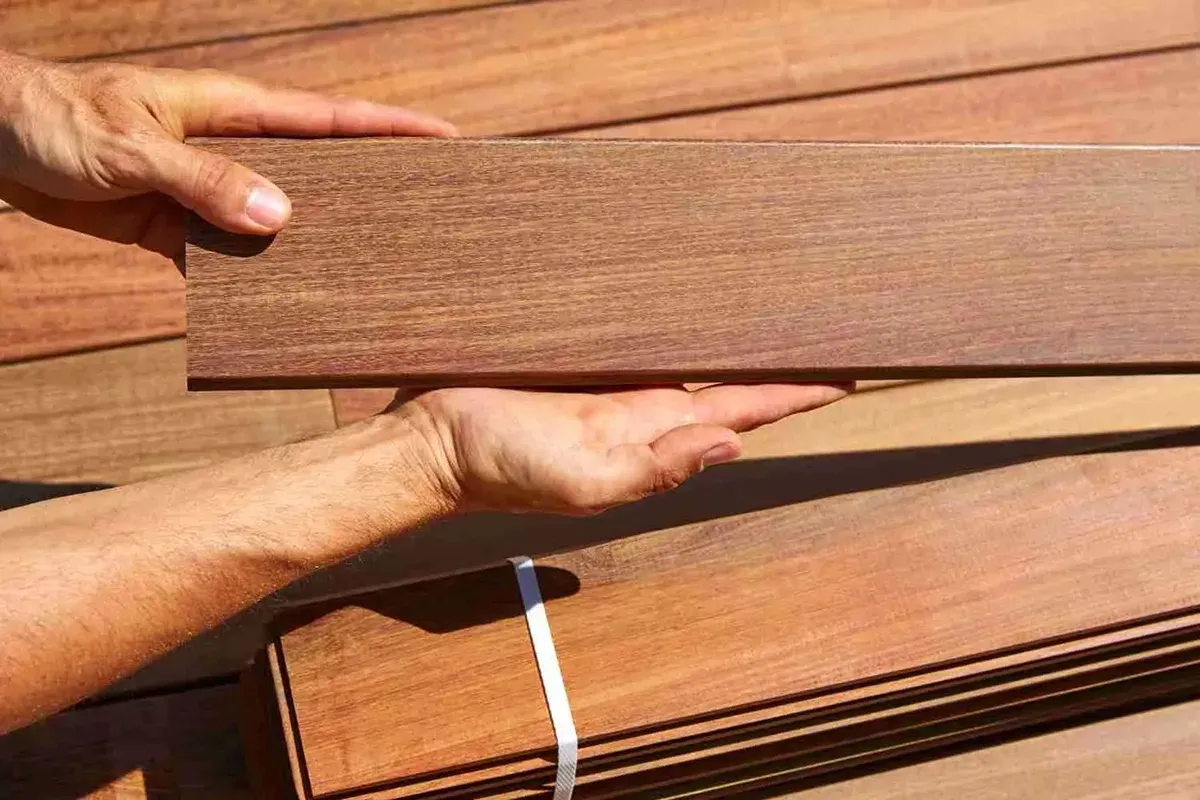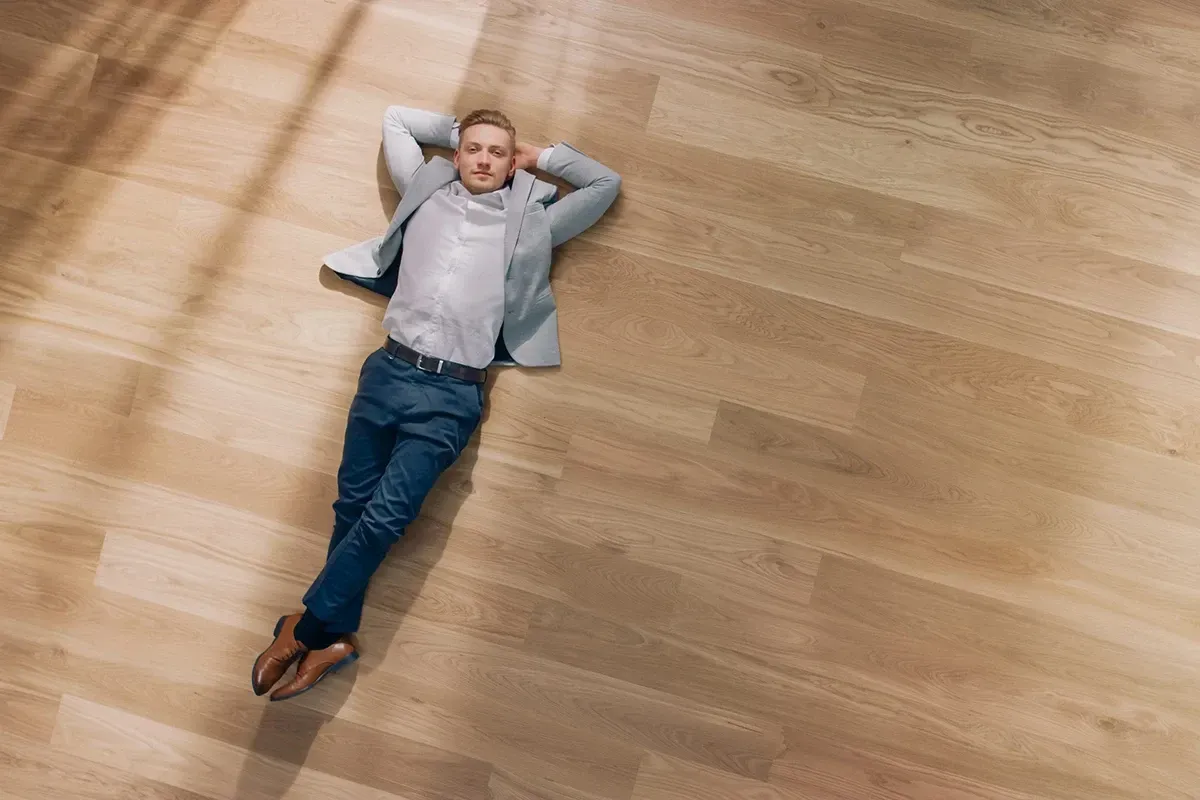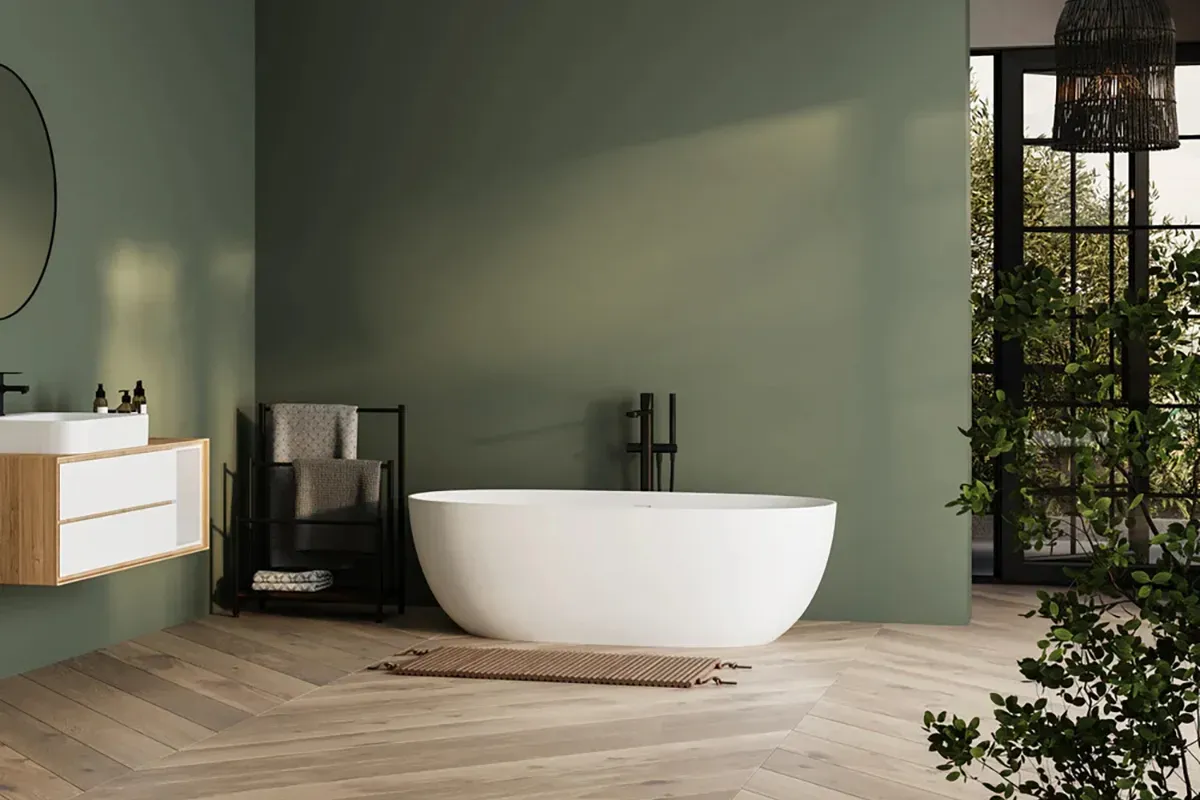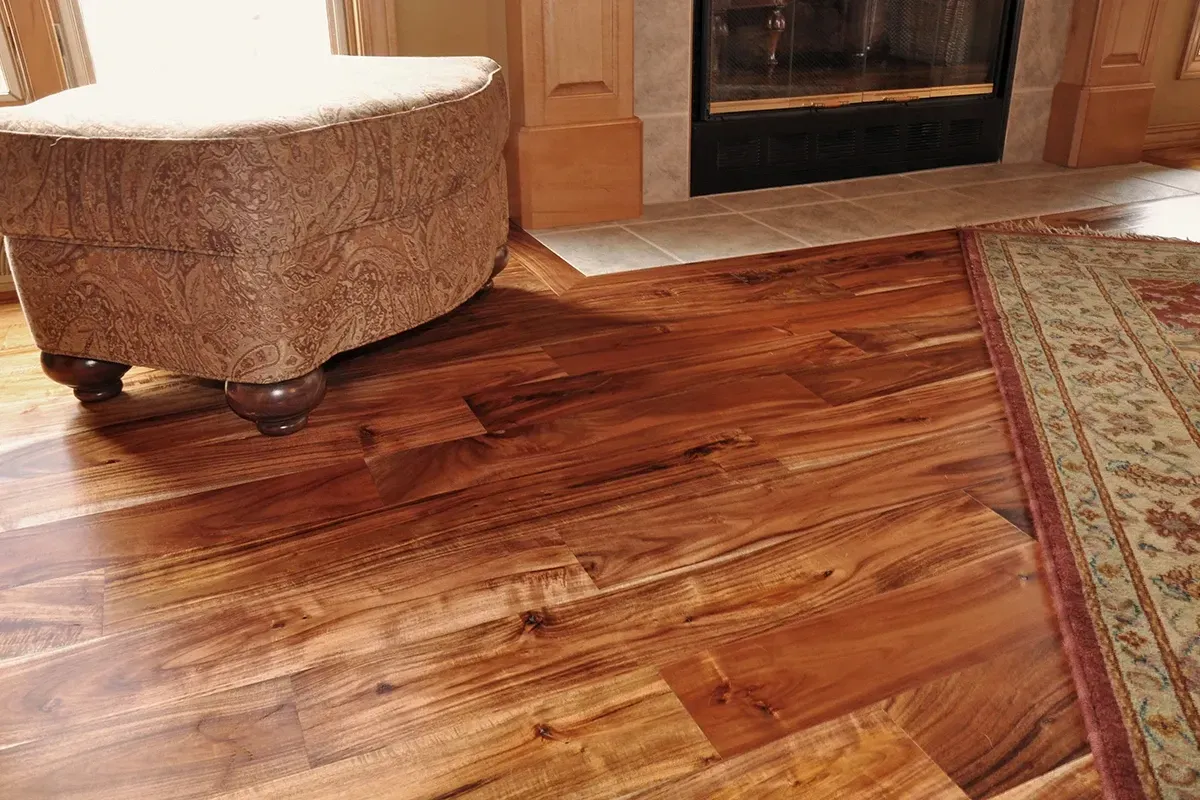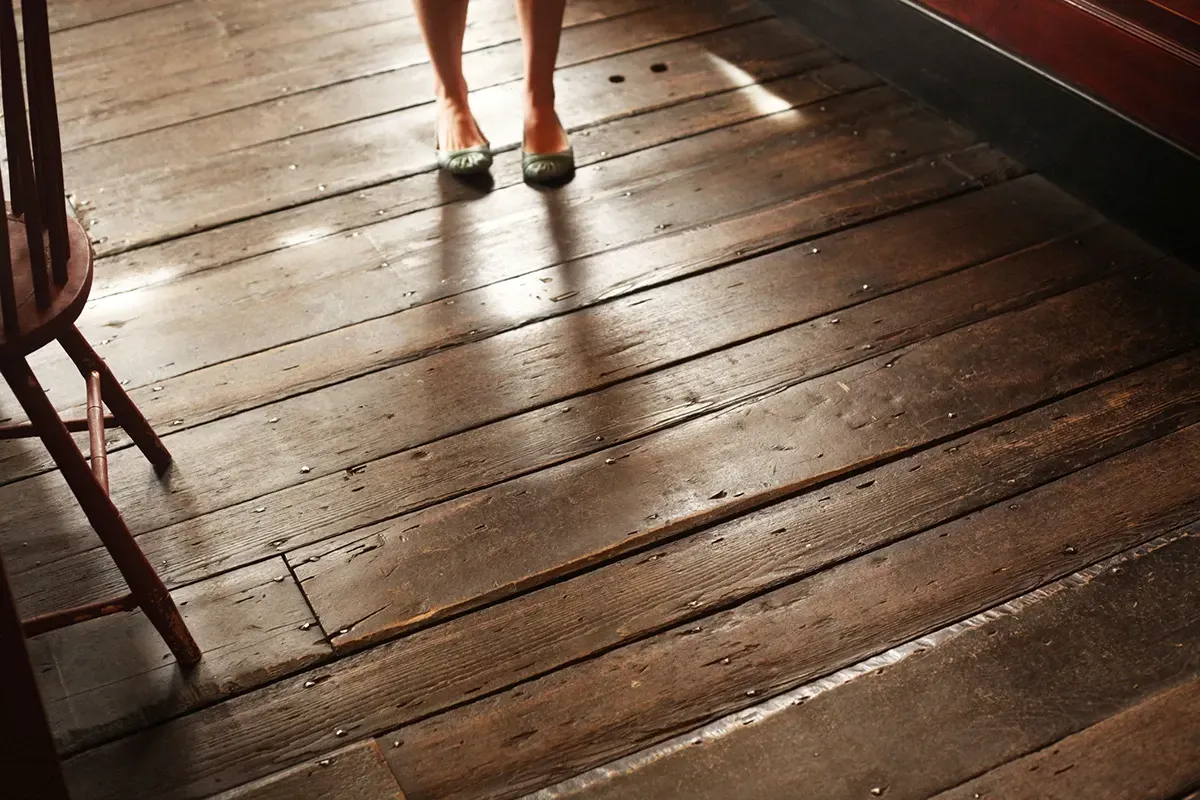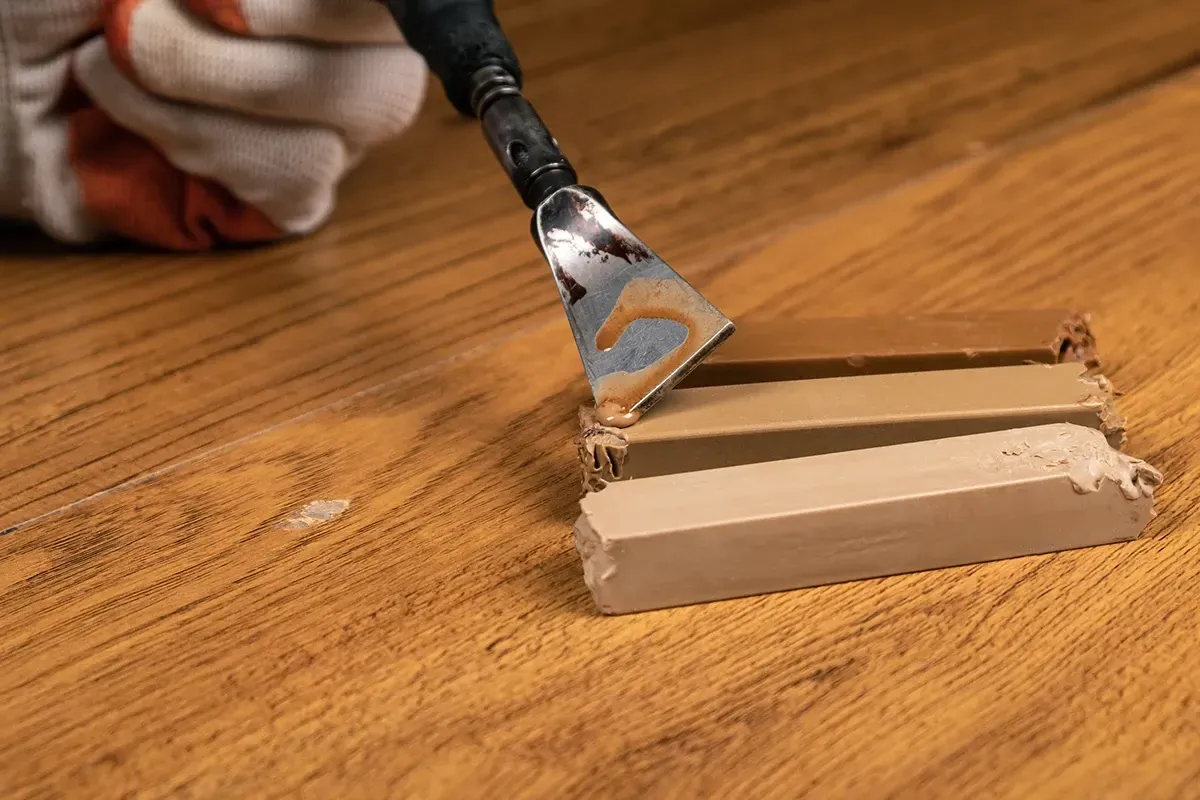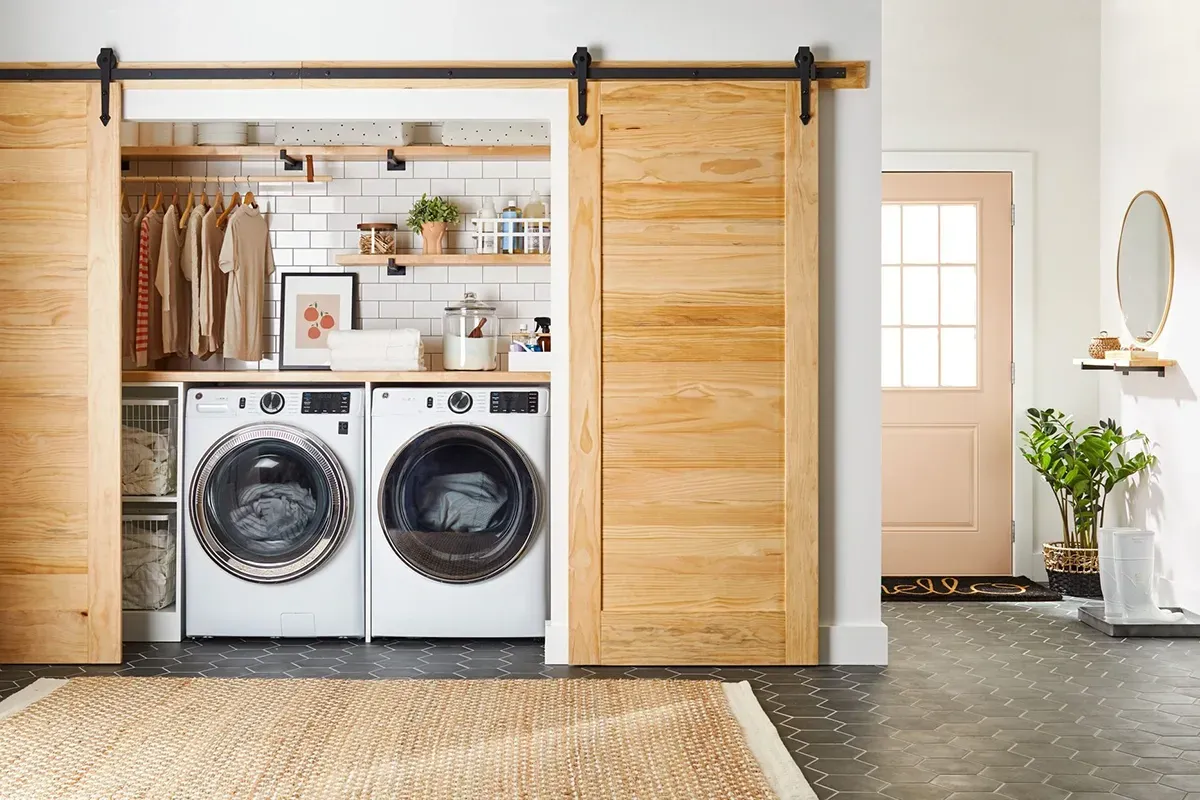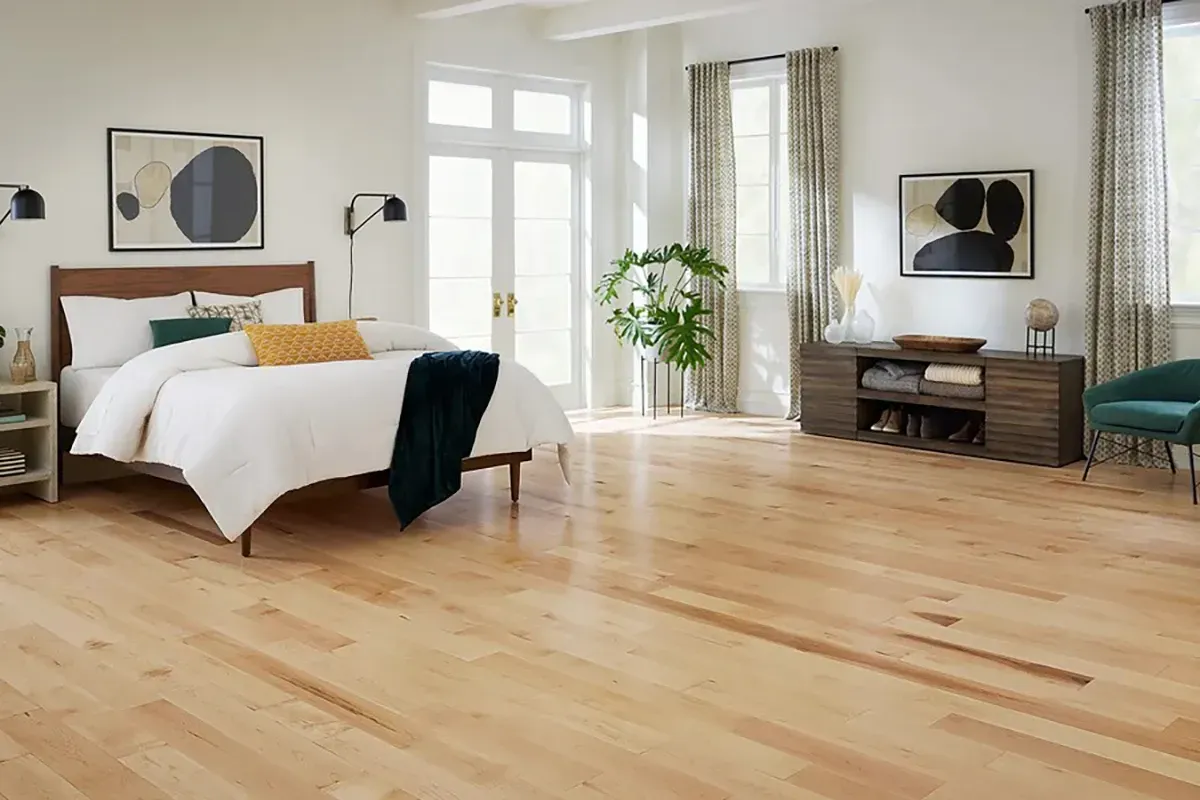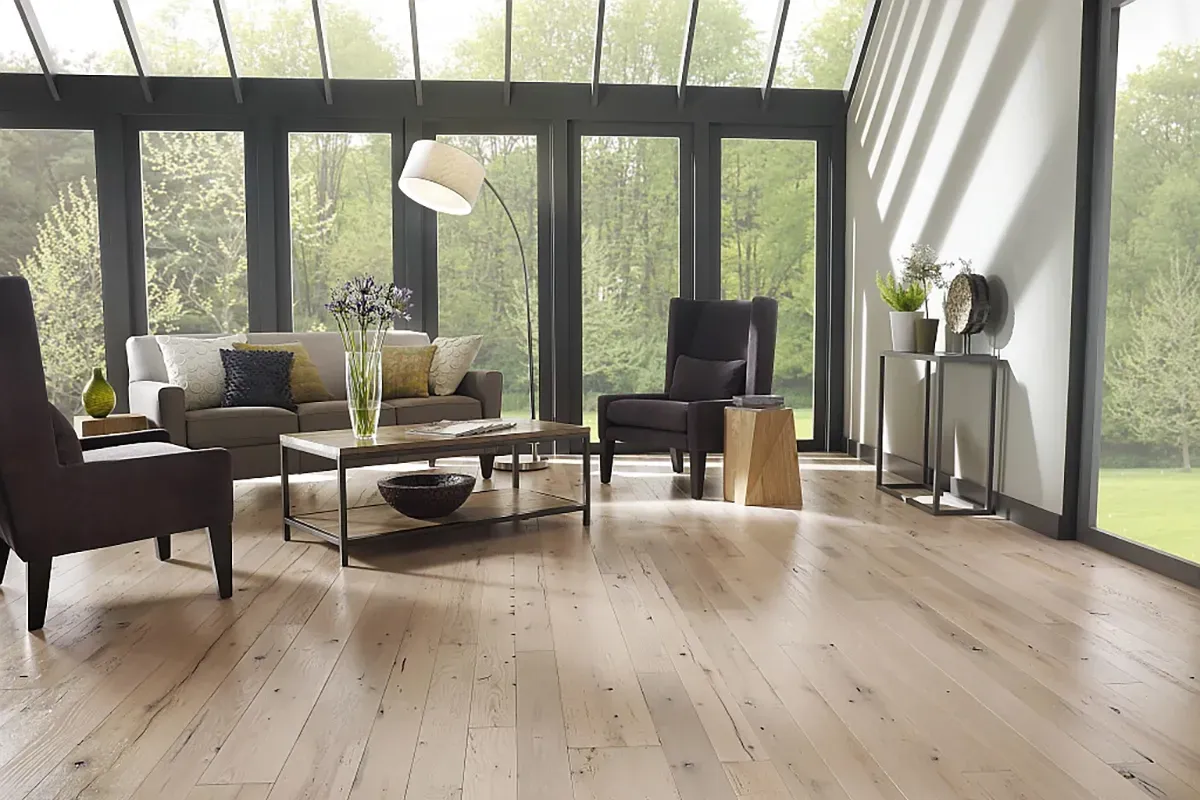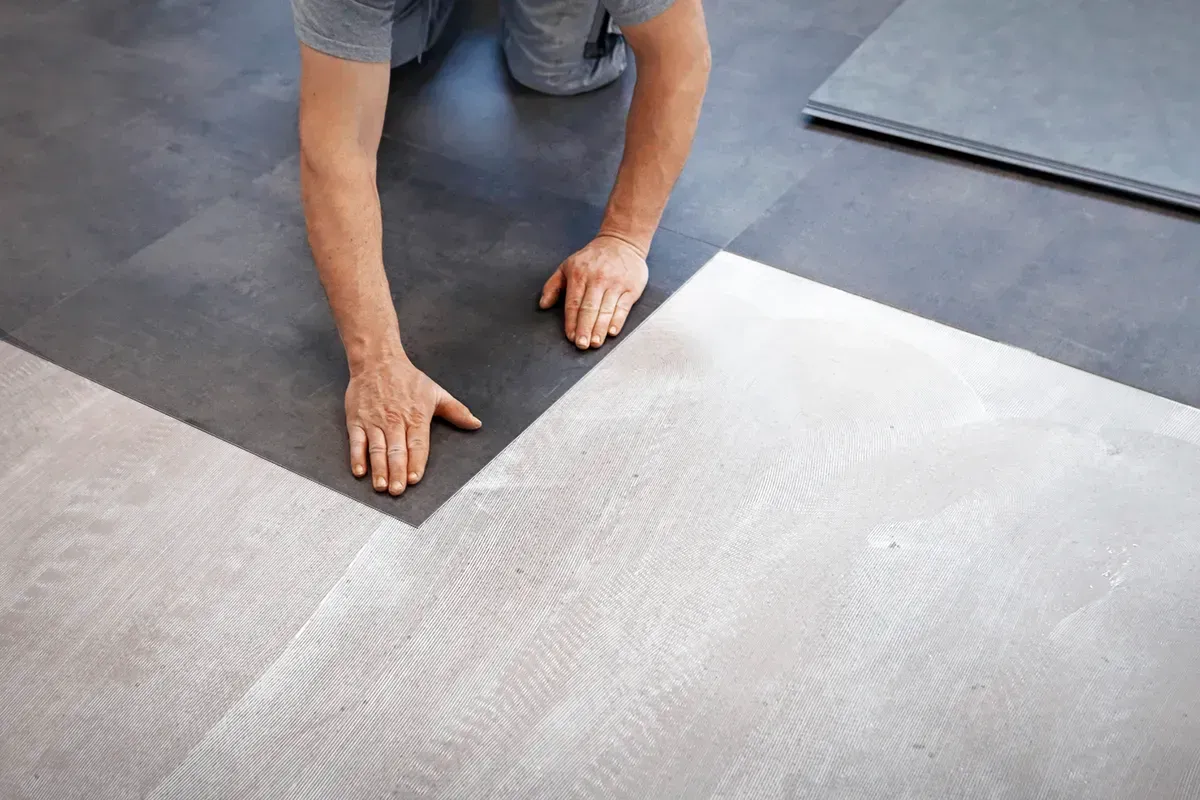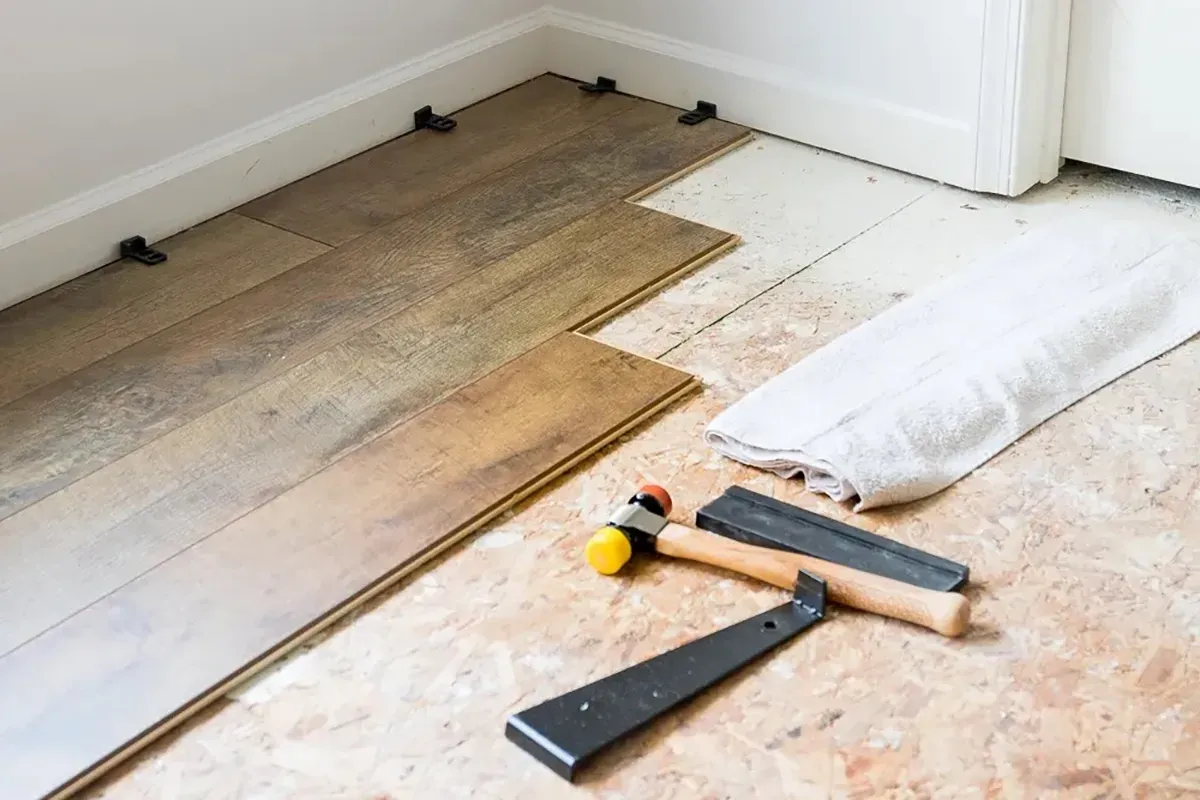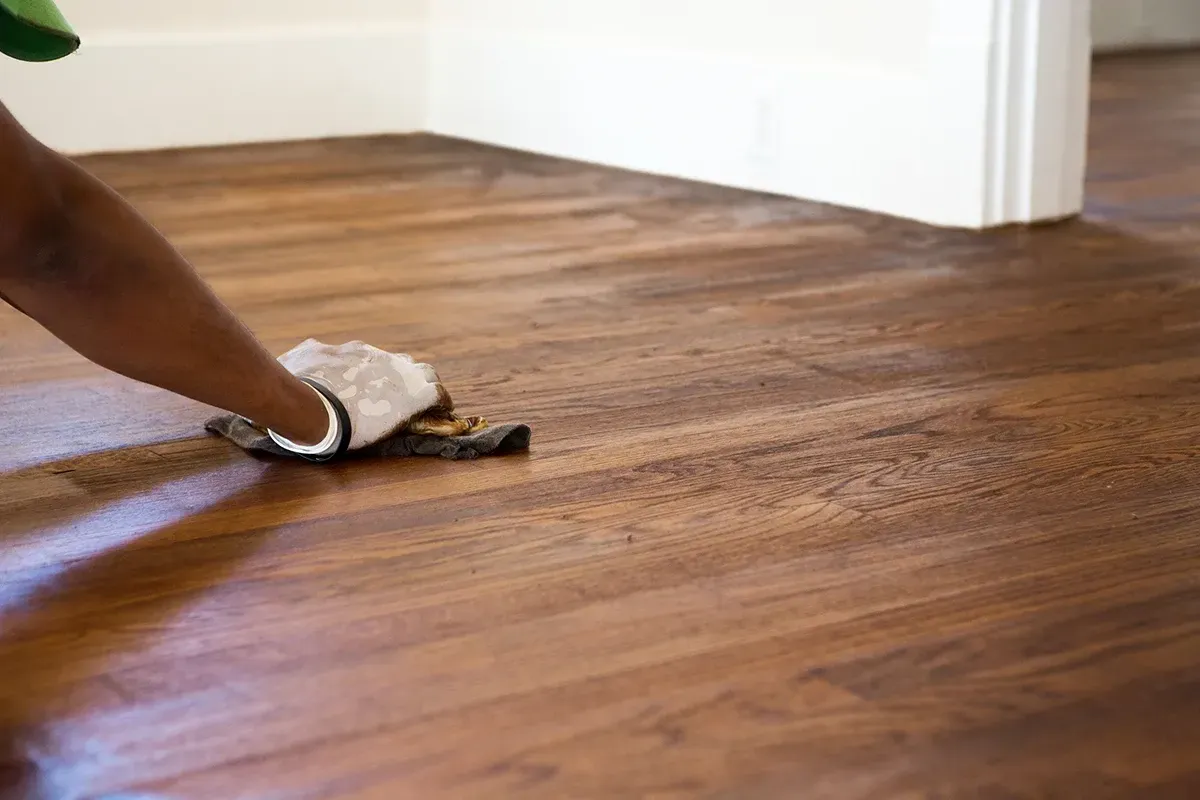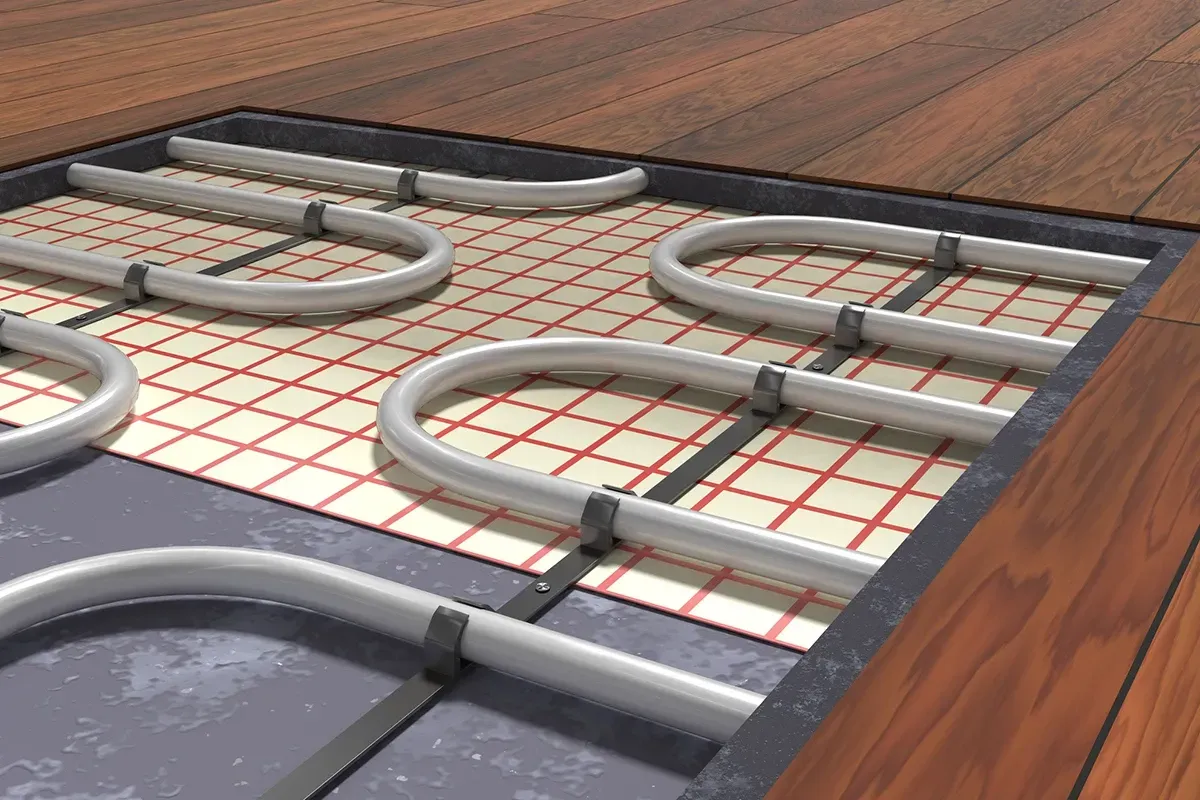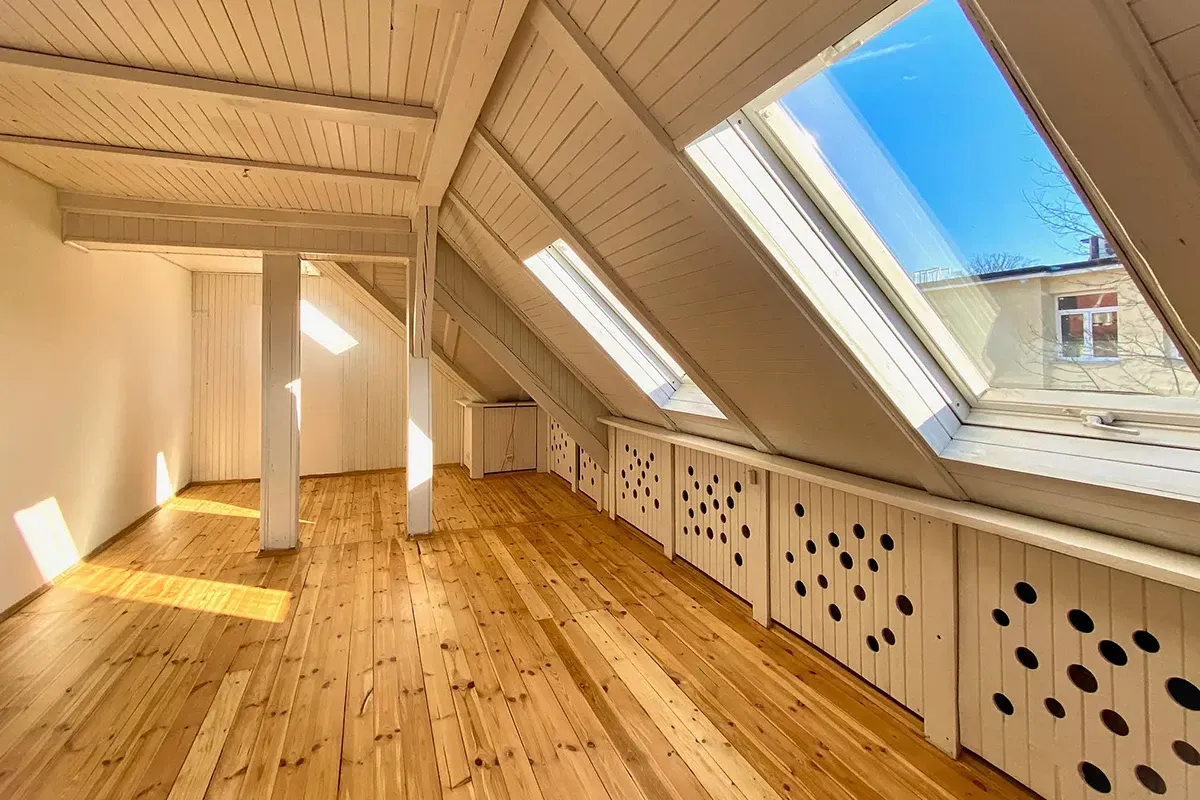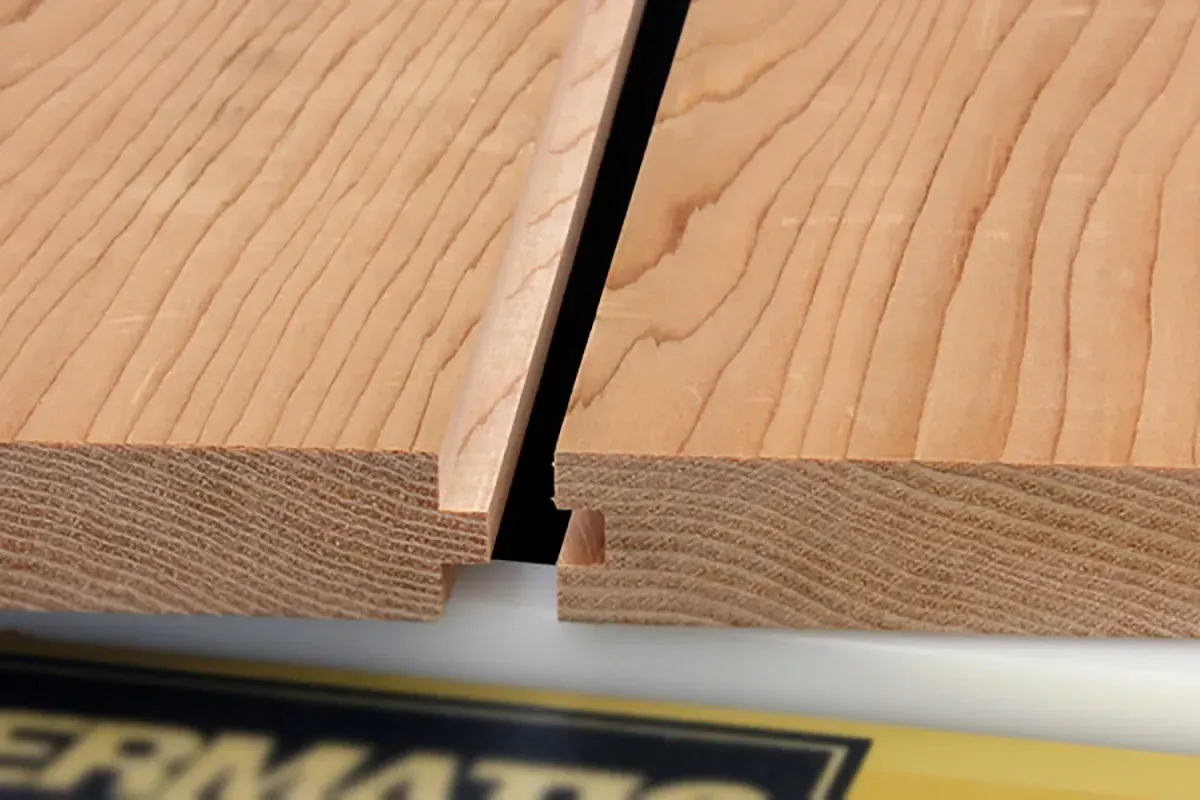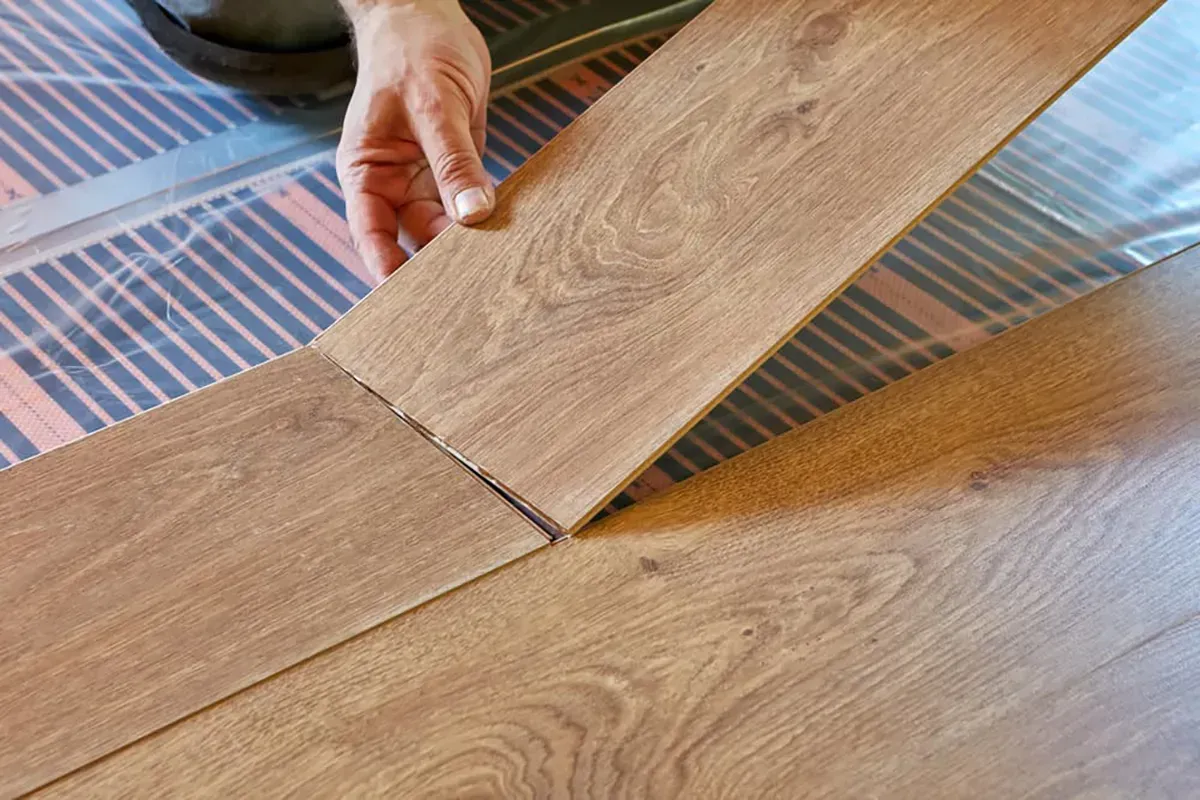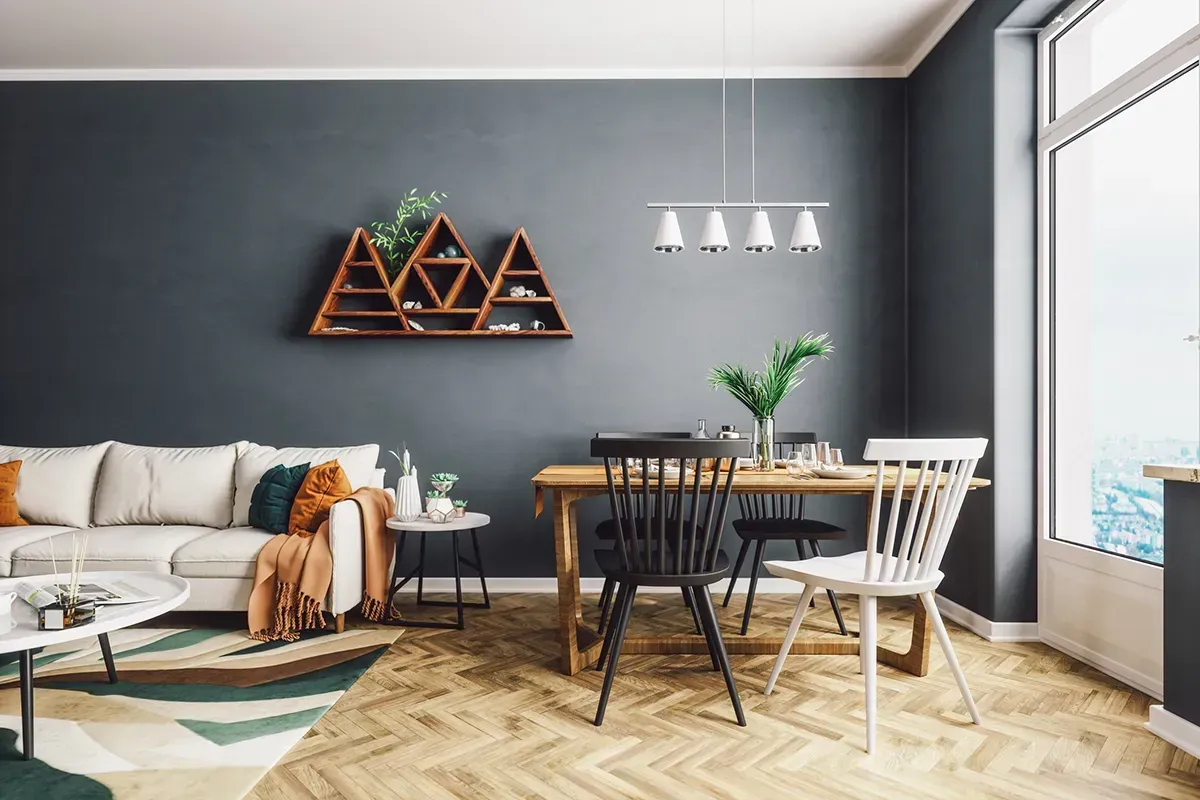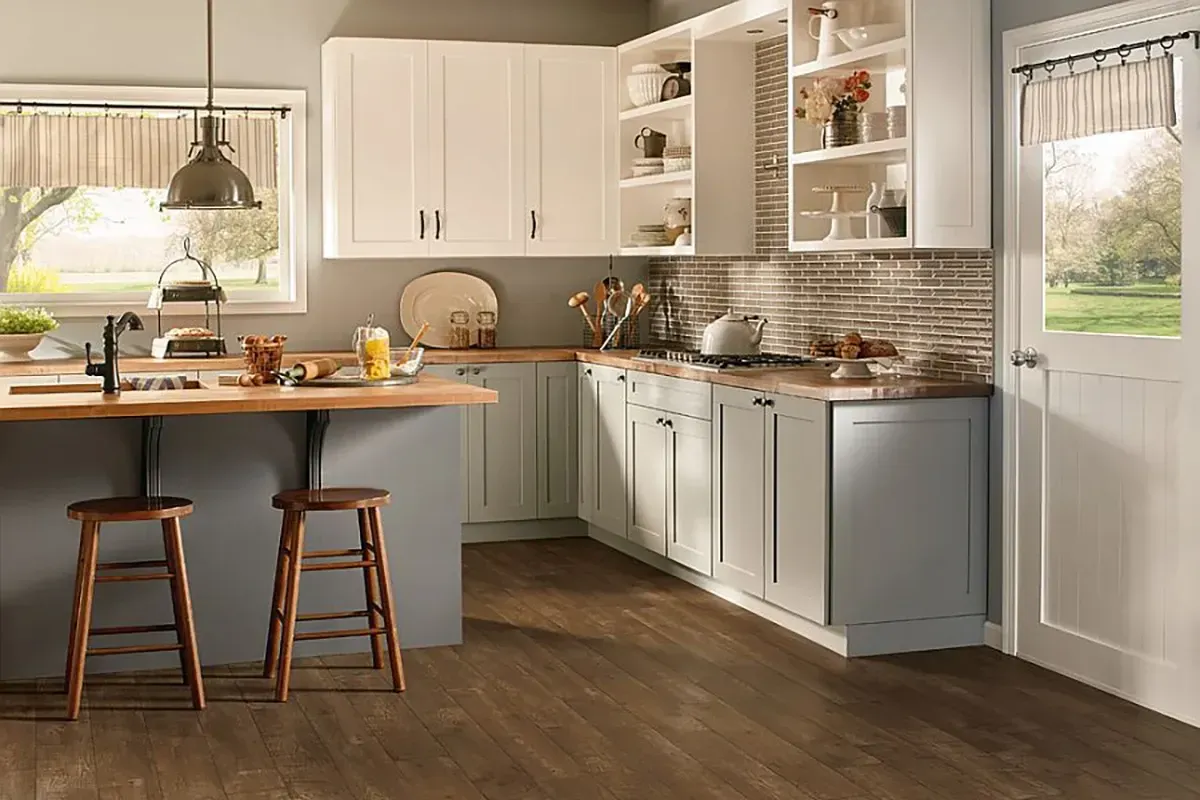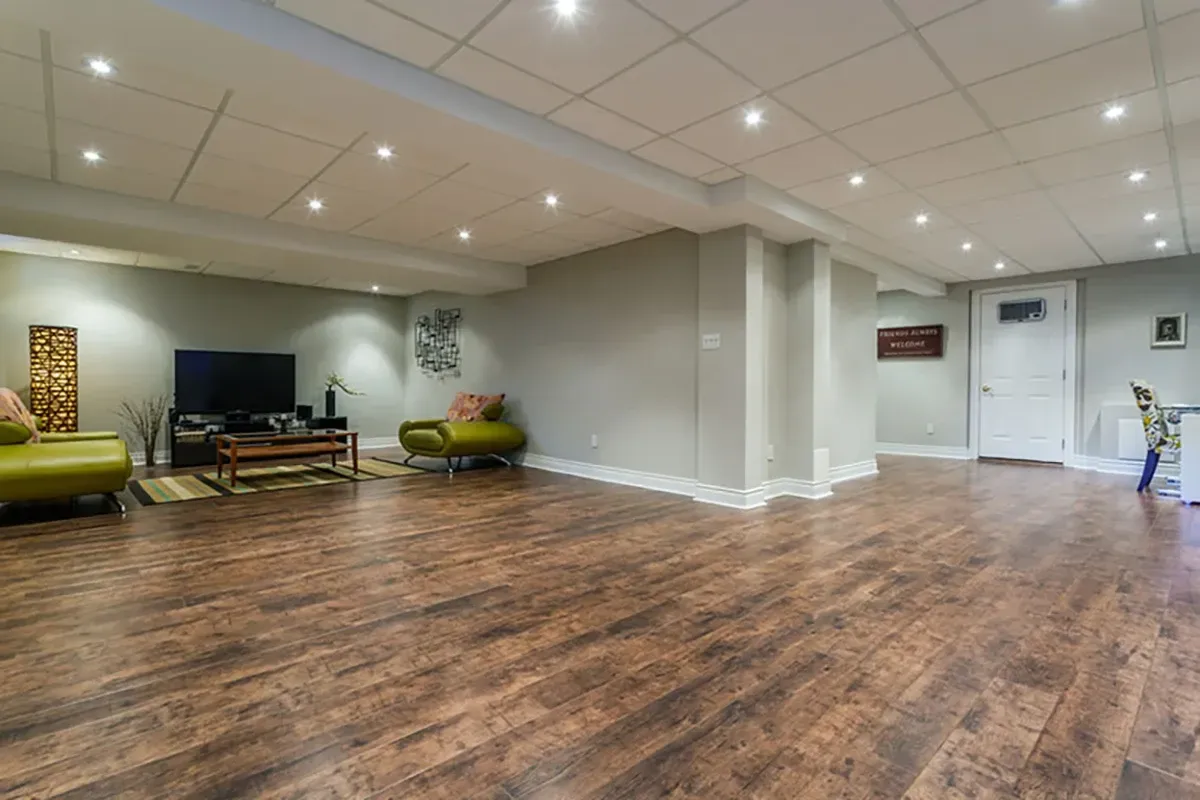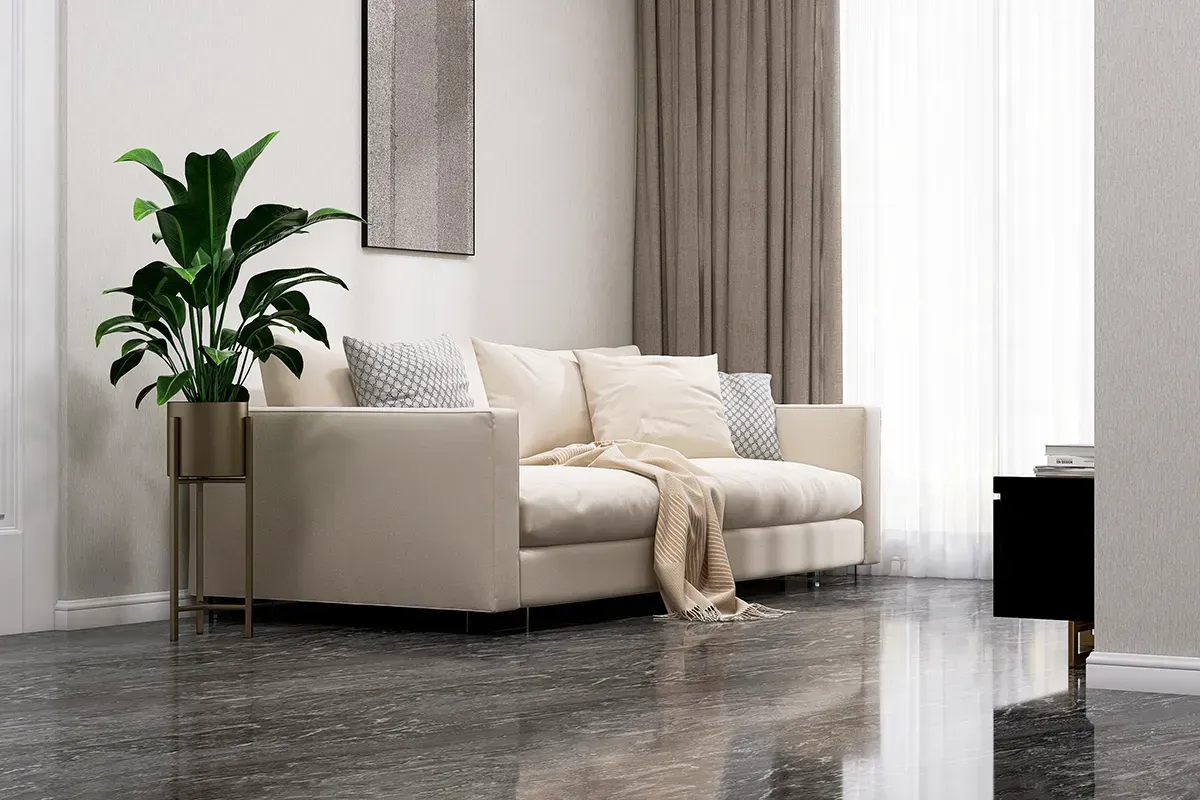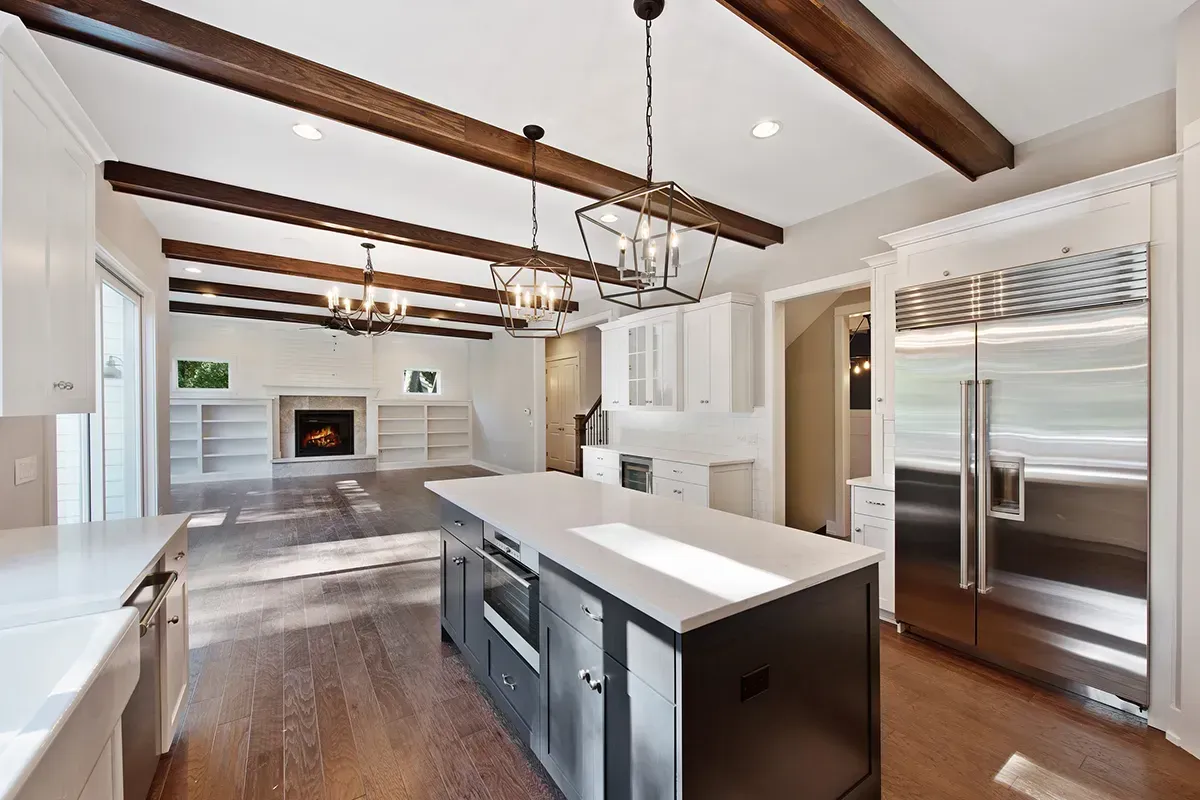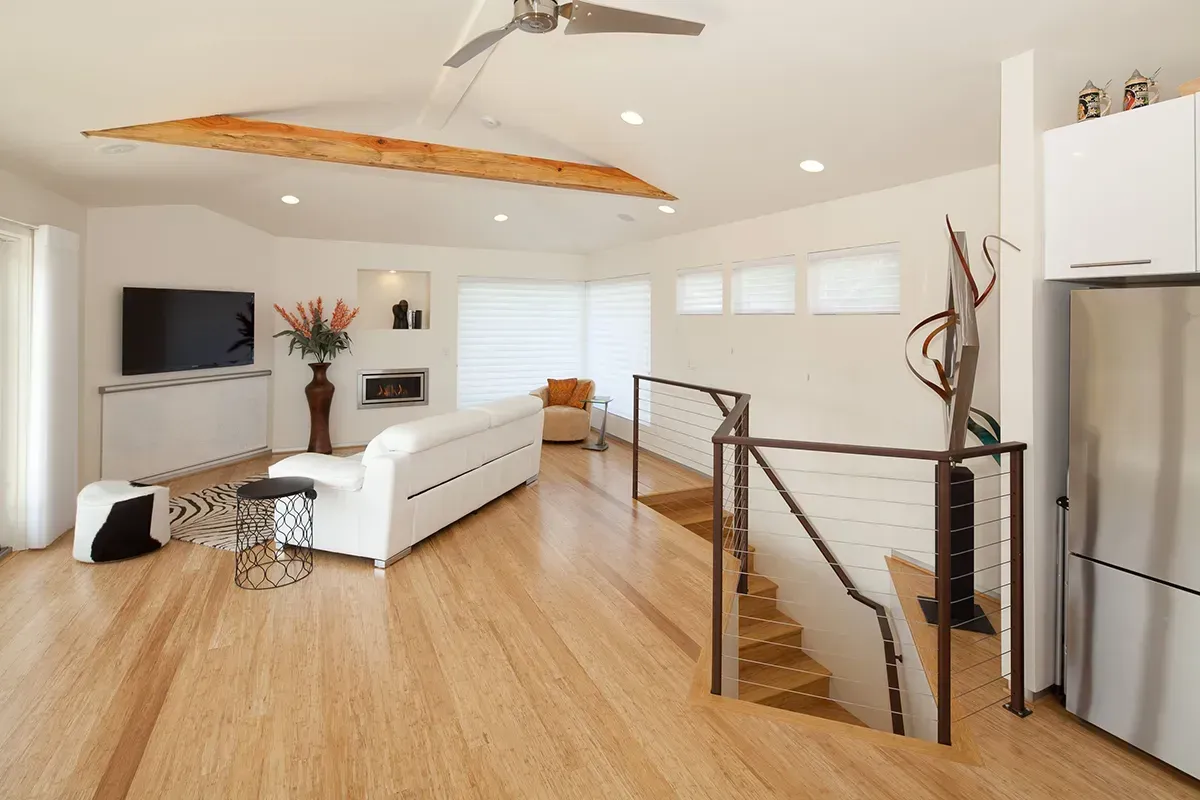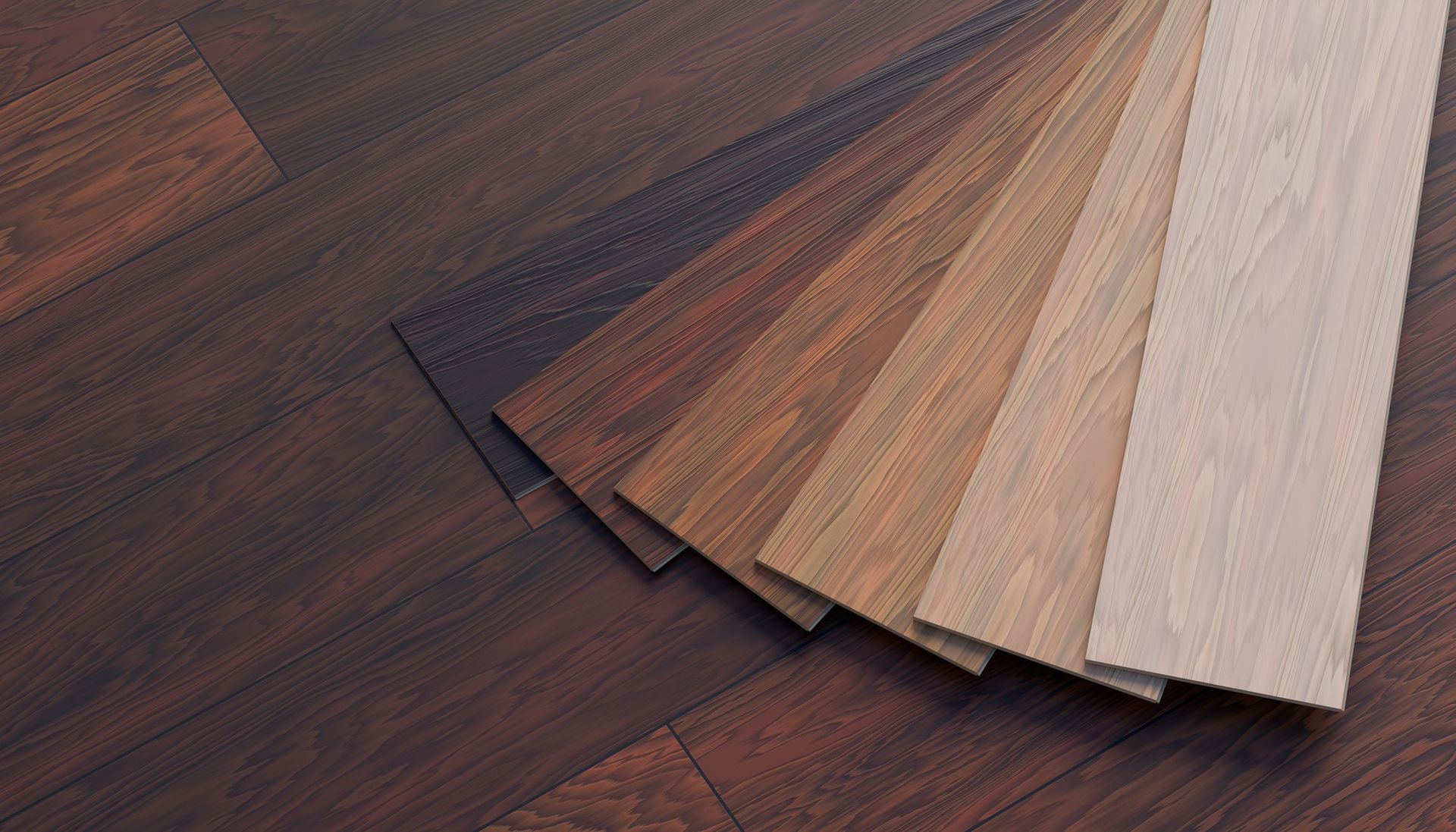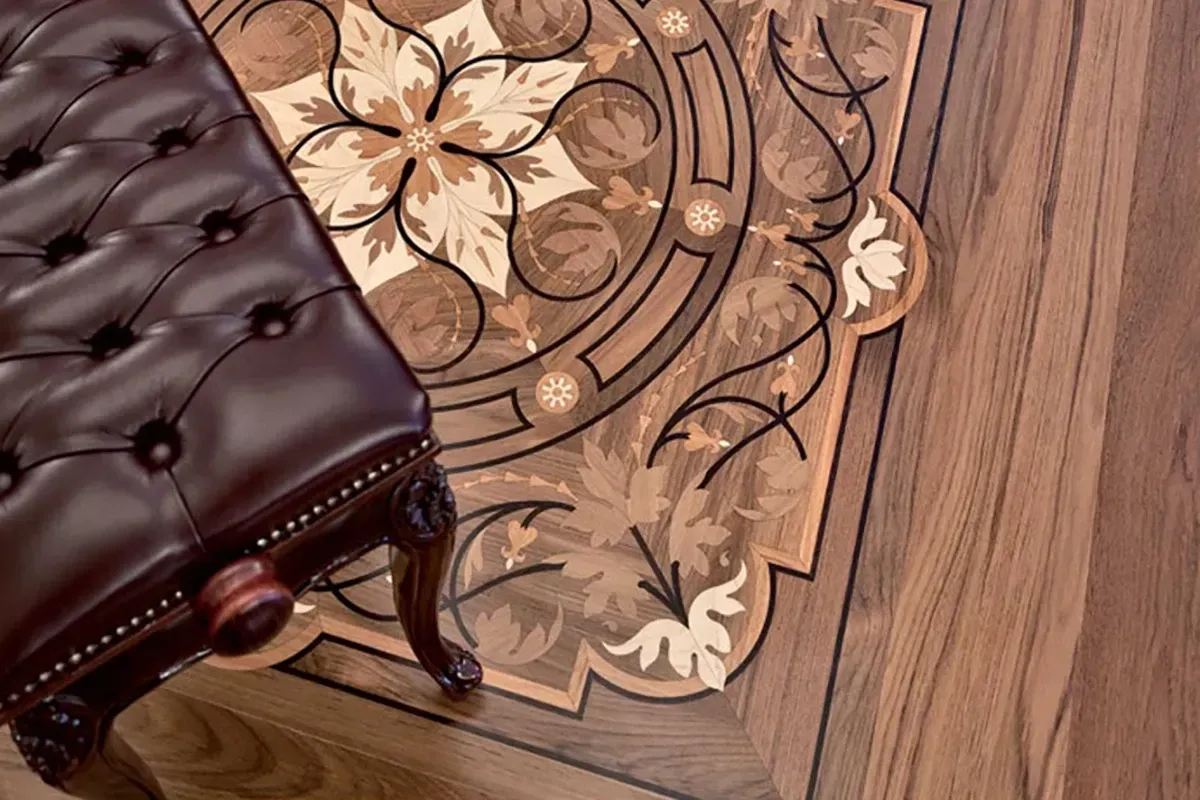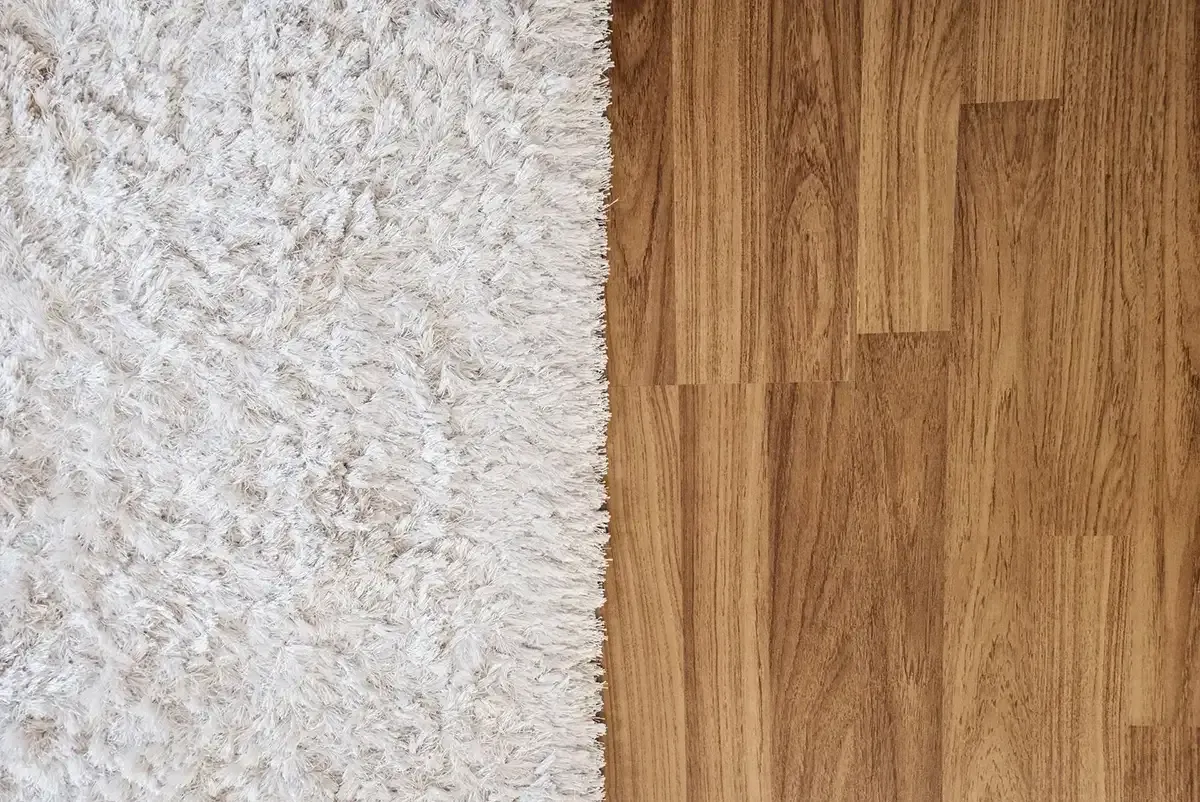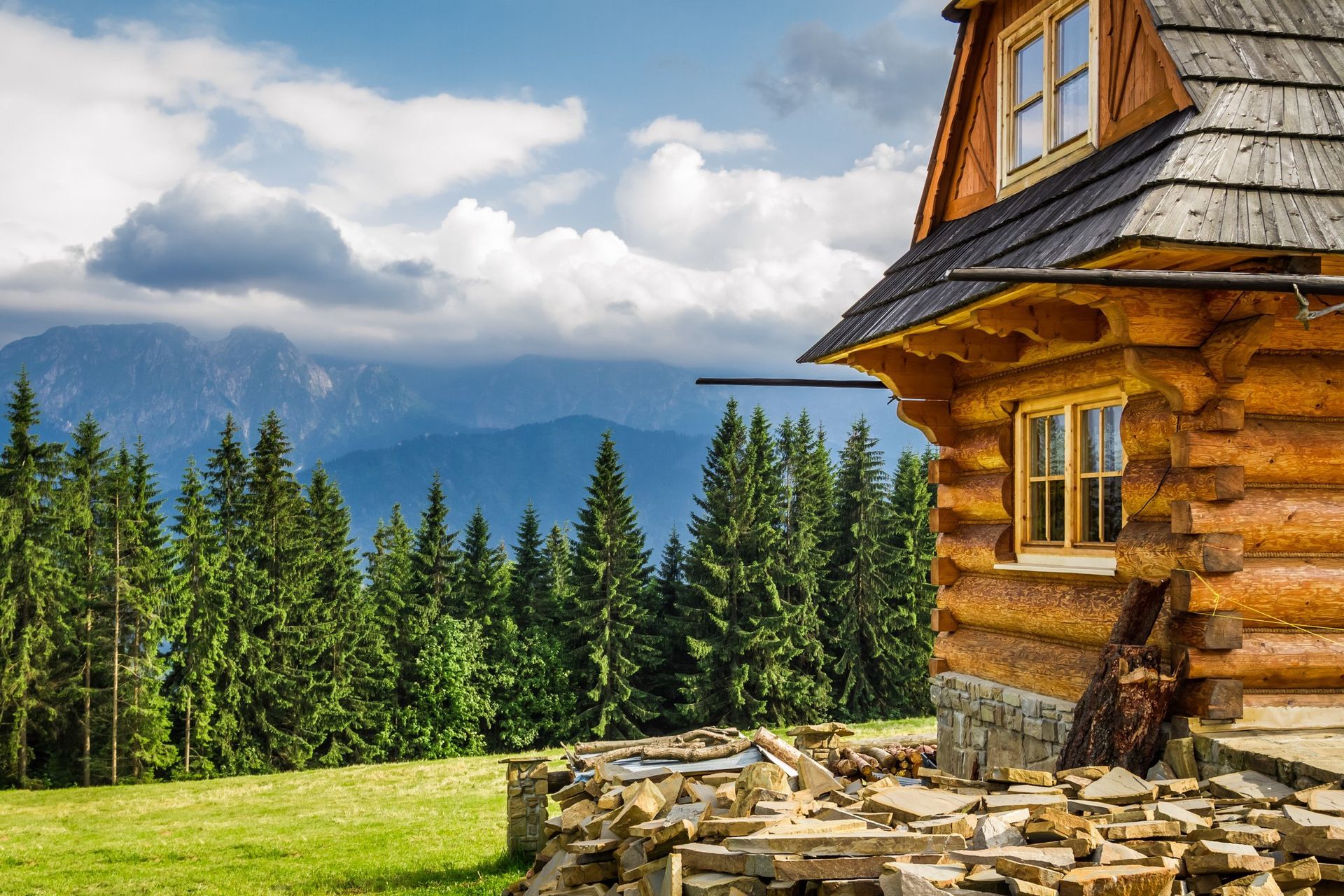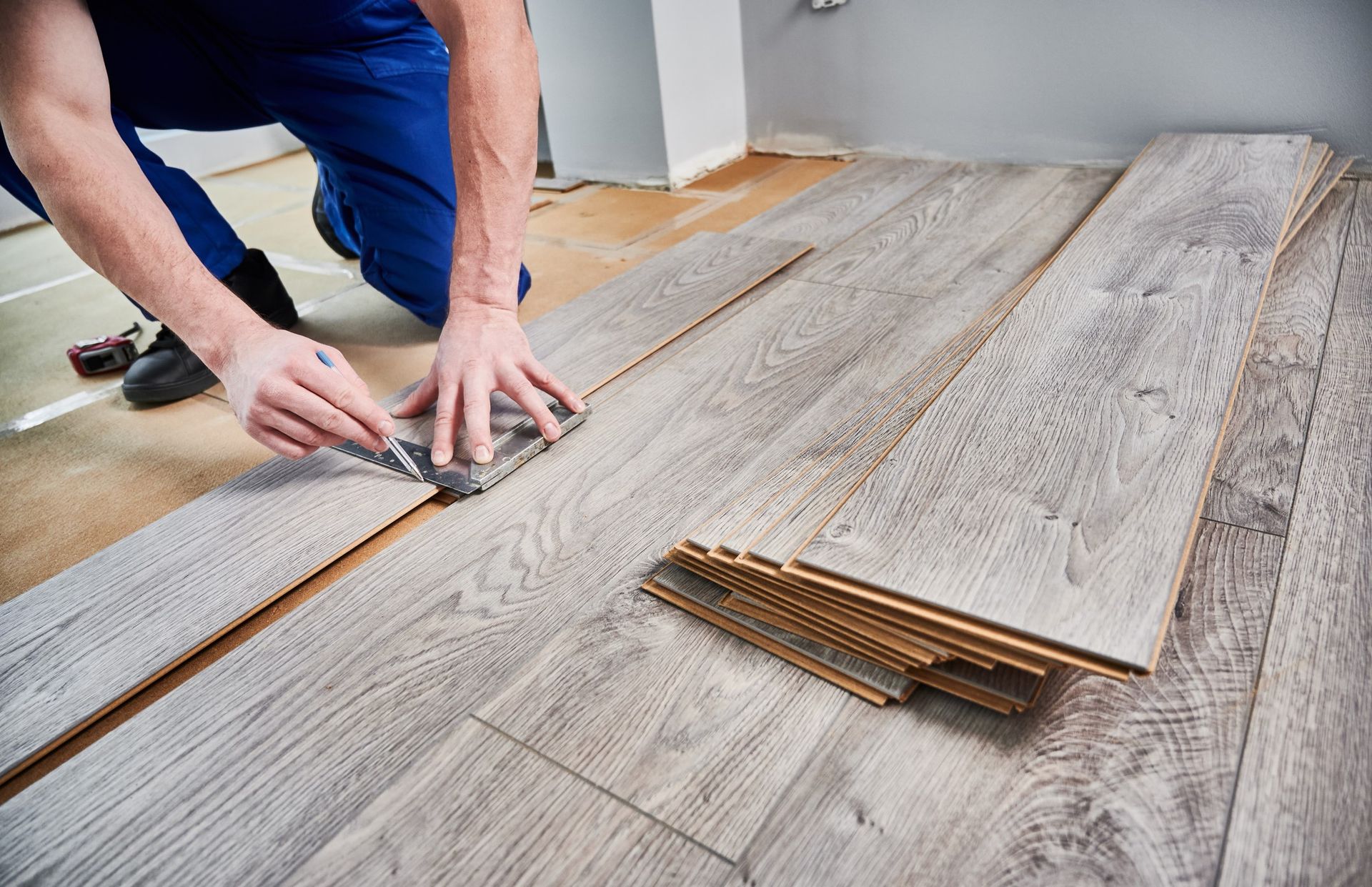( Located in the 42nd Street Station Mall )
Contact us for a Free Estimate
( Located in the 42nd Street Station Mall )
Call or Stop By Our Showroom Today!
Janka Hardness Scale Explained
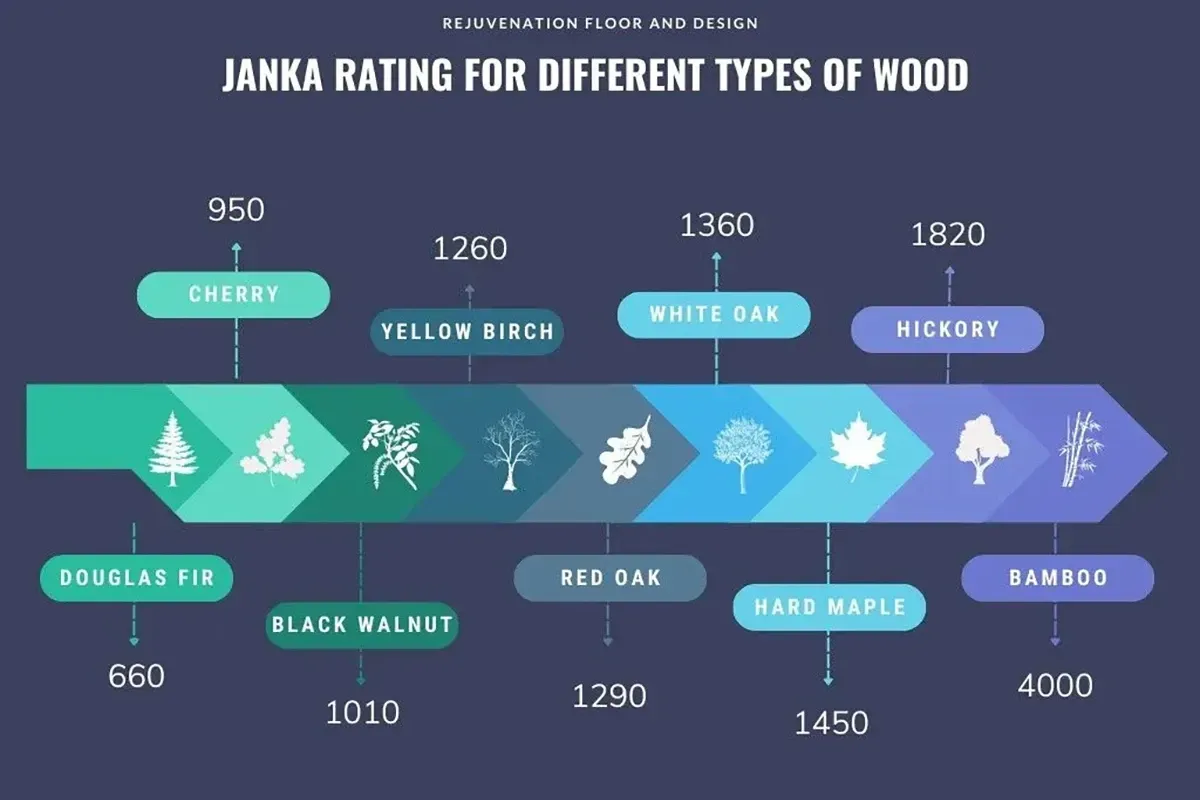
Are you renovating your home and stumped when it comes to choosing the right hardwood flooring? With so many options available, it can feel overwhelming trying to figure out which wood type will stand the test of time—especially when it comes to durability. Did you know that understanding the hardness of wood is one of the most important factors when selecting your new flooring? Luckily, there's a standardized method for determining this: the Janka Hardness Scale.
In this guide, we’ll walk you through everything you need to know about the Janka Hardness Scale, and how this information can help you choose the perfect hardwood floor for your home.
What is the Janka Hardness Scale?
The Janka Hardness Scale is a tool used to measure the hardness of wood species, specifically how resistant a wood sample is to wear, denting, and everyday impact. The Janka Hardness test measures the amount of force required to embed a .444-inch steel ball halfway into a piece of wood, creating a 100-square millimeter depression.
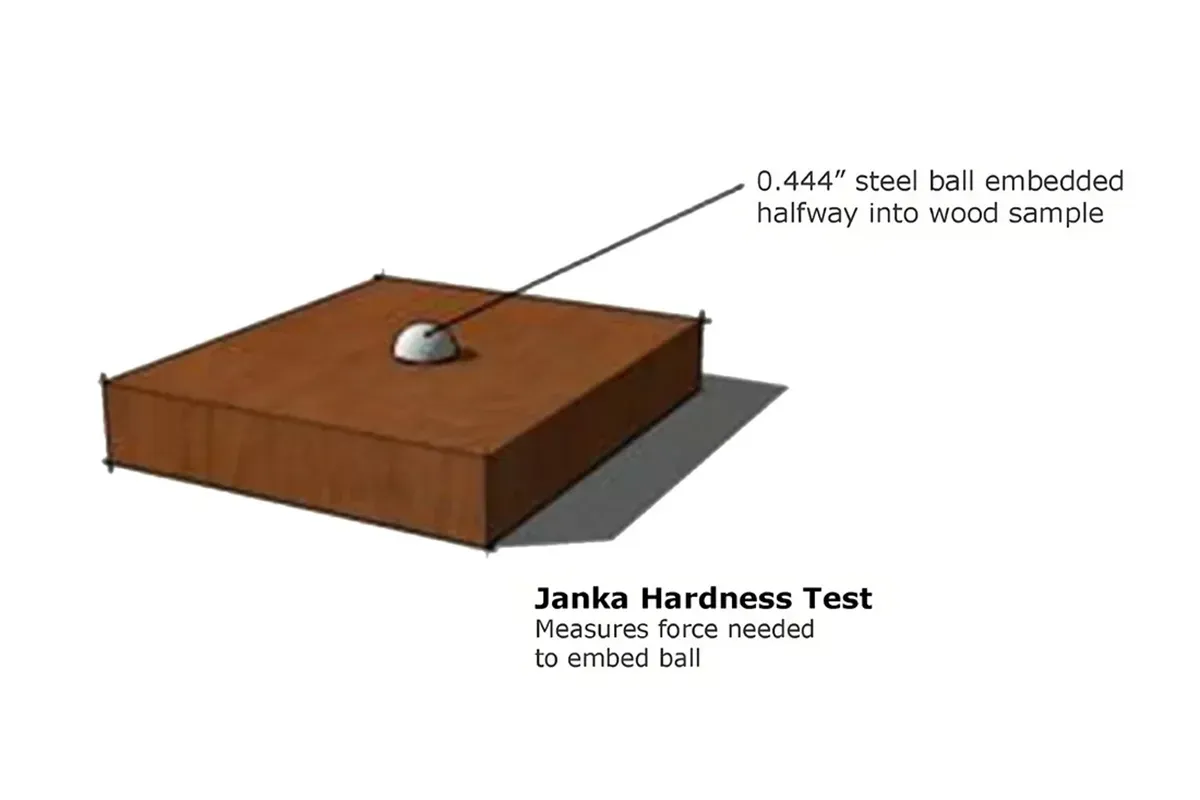
The higher the Janka rating, the harder—and more durable—the wood is. This is why the Janka test is commonly used in the flooring industry to help customers determine the best hardwood species for their needs, particularly in high-traffic areas.
For example, Hickory has a Janka rating of 1820, making it much harder and more durable than American Chestnut, which has a rating of 540. This means that Hickory is more resistant to dents and wear, making it ideal for areas with heavy foot traffic, while Chestnut might be better suited for low-traffic areas or decorative use.
Why Does Janka Hardness Matter?
The Janka Hardness Scale is important because it helps homeowners and contractors alike select the right wood for their specific application. A wood species with a high Janka rating will be more resistant to scratches, dents, and other forms of wear and tear. This is especially important in homes with kids, pets, or heavy furniture that can damage softer wood species over time.
Key Benefits of Understanding Janka Hardness
- Durability: Harder woods are less prone to damage.
- Installation Difficulty: Harder woods may be tougher to cut or nail.
- Maintenance: Softer woods may require more maintenance to keep them looking good.
- Longevity: Harder woods can withstand wear longer, making them a better long-term investment.
Common Hardwood Species and Their Janka Ratings
Here’s a quick reference of popular hardwood flooring species and their corresponding Janka ratings:
- Red Oak: 1290 (the industry standard by which other woods are often measured)
- White Oak: 1360 (slightly harder than Red Oak, ideal for high-traffic areas)
- Hickory: 1820 (extremely durable, great for commercial spaces)
- Maple: 1450 (hard and smooth, a popular choice for kitchens)
- Brazilian Cherry: 2350 (an exotic wood known for its incredible hardness)
- American Walnut: 1010 (softer wood, best for low-traffic areas)
- Teak: 1000 (softer but naturally resistant to moisture, perfect for humid areas)
How to Use the Janka Scale to Choose Your Wood Flooring
For High-Traffic Areas:
If you're looking for flooring for high-traffic areas like hallways, kitchens, or commercial spaces, you’ll want a wood species with a higher Janka rating. Woods like White Oak (1360) or Hickory (1820) are excellent choices because they can withstand heavy use and still maintain their appearance for years.
For Low-Traffic Areas:
In low-traffic areas like bedrooms or formal living rooms, a softer wood with a lower Janka rating may be sufficient. American Walnut (1010), for example, is known for its rich color and beauty, but it’s not as hard as Hickory or Maple, making it a better choice for areas where wear is minimal.
For Special Use Cases:
Certain woods like Teak (1000) are popular not just for their hardness but for other properties like moisture resistance. Teak, though not as hard as other woods, is perfect for areas prone to humidity due to its natural water resistance.
Janka Hardness and Flooring Installation
It's also important to note that the hardness of the wood affects the installation process. Harder woods are generally more difficult to cut and nail during installation, requiring more specialized tools and techniques. On the other hand, softer woods are easier to work with but may show wear and dents sooner.
Janka Hardness Scale FAQ
1. Is a Higher Janka Rating Always Better?
Not necessarily. While harder woods tend to be more durable, they may also be more challenging to install and less flexible in terms of design. Softer woods like Pine or Cedar can offer a more rustic look and feel, which might suit your aesthetic better than harder woods.
2. Does Janka Rating Affect the Price of Wood?
Yes, wood species with higher Janka ratings tend to be more expensive due to their durability and the difficulty of working with them during installation. Exotic woods like Brazilian Cherry with a Janka rating of 2350 are often priced higher than domestic woods like Maple (1450).
3. Can I Refinish Softer Woods More Often?
Yes, softer woods can generally be refinished more times than harder woods. However, they may require more frequent refinishing due to dents and scratches.
Final Thoughts: Choosing the Right Hardwood Flooring with Janka Ratings
Understanding the Janka Hardness Scale can be a game-changer when selecting the right hardwood floor for your home. Whether you need something durable for high-traffic areas or a softer wood that adds warmth to a low-use space, knowing the hardness of the wood can help you make the right choice.
At Rejuvenation Floor & Design, we’re here to help you navigate these choices and find the perfect flooring solution for your home.
Recent Articles
BROWSE OUR WEBSITE:
CONTACT INFORMATION:
Phone: (503) 989-8997
Address:
Rejuvenation Floor & Design
2000 NE 42nd Ave #B, Portland, Oregon 97213-1357
(Located in the 42nd Street Station Mall) directions
Your Local Flooring Store in Portland Serving the Following Communities:
Beaverton | Canby | Clackamas | Damascus | Estacada | Gladstone | Gresham | Happy Valley | Lake Oswego | Milwaukie | Oregon City | Sandy | Scappoose | Sherwood | St. Helens | Tigard | Tualatin | Welches | West Linn | Wilsonville | Zig Zag

